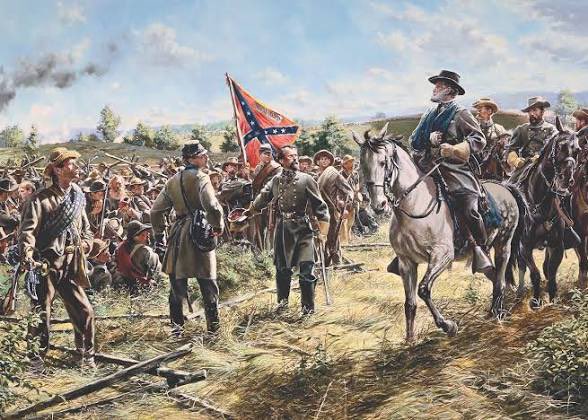
Exploring the past and how we got to the present, with a heavy focus on American History and western civilization. Retired Marine Corps combat veteran.
How to get URL link on X (Twitter) App

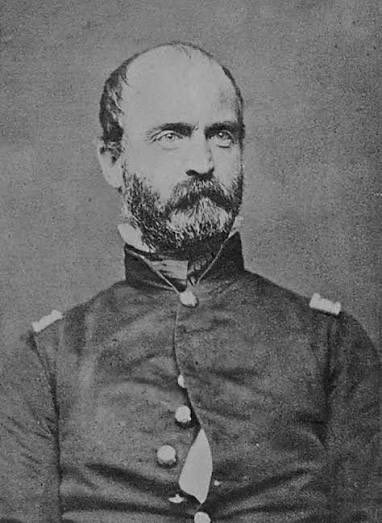
 2/ Lewis Addison Armistead was born February 18, 1817, in New Bern, North Carolina, into a military family—his father fought in the War of 1812, and his grandfather was a Revolutionary War hero. Raised in Virginia, young Lewis attended West Point in 1833 but was expelled in 1836 after breaking a plate over fellow cadet Jubal Early’s head during a mess hall brawl (though academic issues played a role too). Undeterred, he joined the U.S. Army in 1839 as a second lieutenant through family connections.
2/ Lewis Addison Armistead was born February 18, 1817, in New Bern, North Carolina, into a military family—his father fought in the War of 1812, and his grandfather was a Revolutionary War hero. Raised in Virginia, young Lewis attended West Point in 1833 but was expelled in 1836 after breaking a plate over fellow cadet Jubal Early’s head during a mess hall brawl (though academic issues played a role too). Undeterred, he joined the U.S. Army in 1839 as a second lieutenant through family connections. 
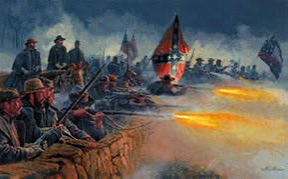
 Background to the Fredericksburg Campaign
Background to the Fredericksburg Campaign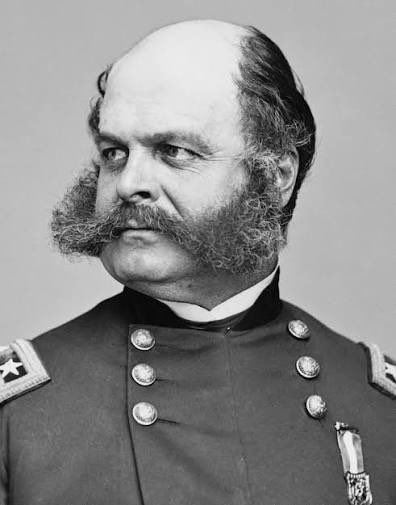
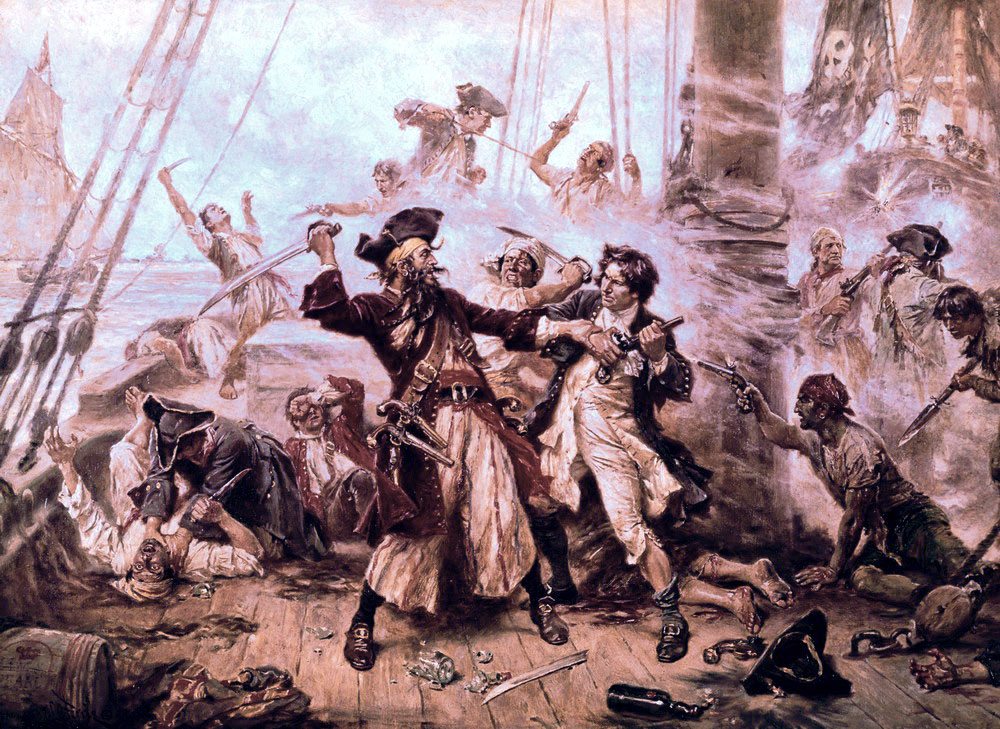
 2/ Blackbeard, born Edward Teach around 1680 in Bristol, England, rose from a privateer during Queen Anne's War to one of history's most infamous pirates. He captured ships off the American colonies, amassing a fleet and striking fear with his wild beard braided and lit with slow-burning fuses during battles.
2/ Blackbeard, born Edward Teach around 1680 in Bristol, England, rose from a privateer during Queen Anne's War to one of history's most infamous pirates. He captured ships off the American colonies, amassing a fleet and striking fear with his wild beard braided and lit with slow-burning fuses during battles.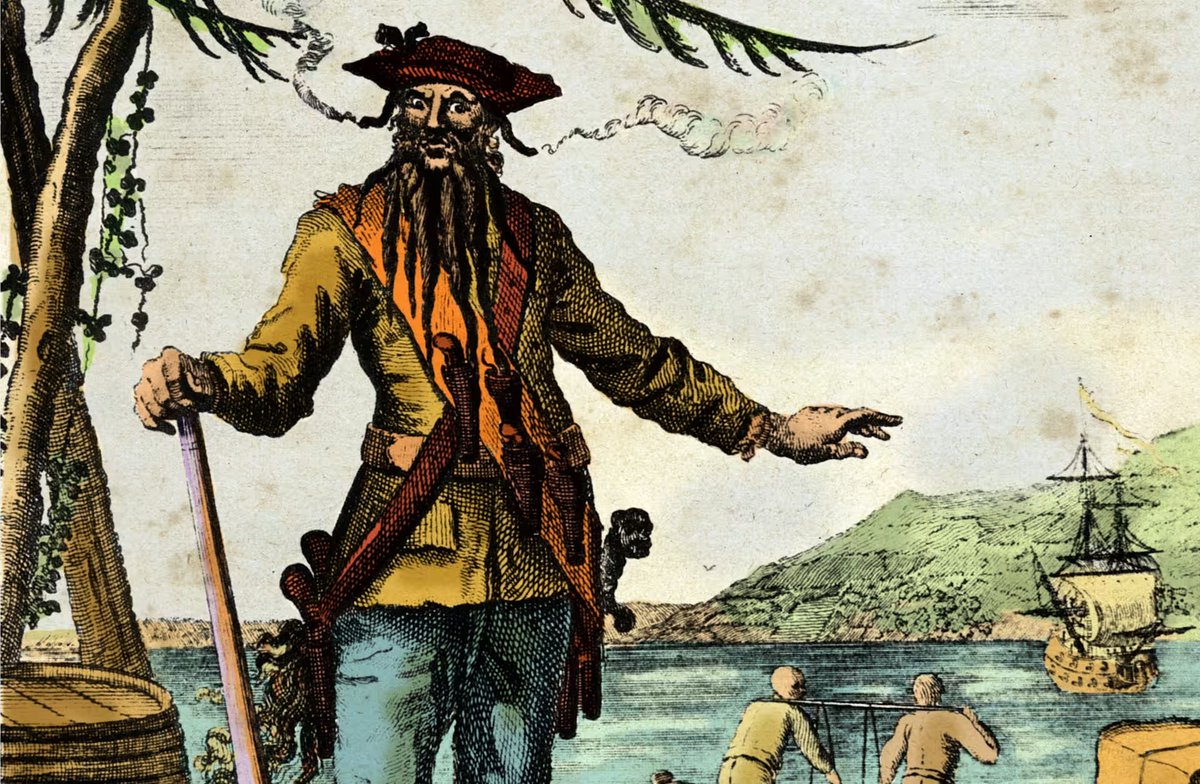
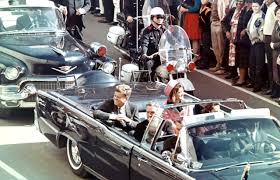
 2/ Oswald’s rifle and marksmanship: The Warren Commission claimed he fired three shots in 6–8 seconds with a cheap, poorly maintained Mannlicher-Carcano—hitting JFK twice from 88 yards. Yet Oswald was rated a poor shot in the Marines, the rifle’s scope was misaligned, and while not impossible, some experts struggled with the shots.
2/ Oswald’s rifle and marksmanship: The Warren Commission claimed he fired three shots in 6–8 seconds with a cheap, poorly maintained Mannlicher-Carcano—hitting JFK twice from 88 yards. Yet Oswald was rated a poor shot in the Marines, the rifle’s scope was misaligned, and while not impossible, some experts struggled with the shots.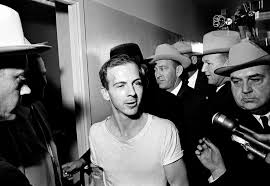
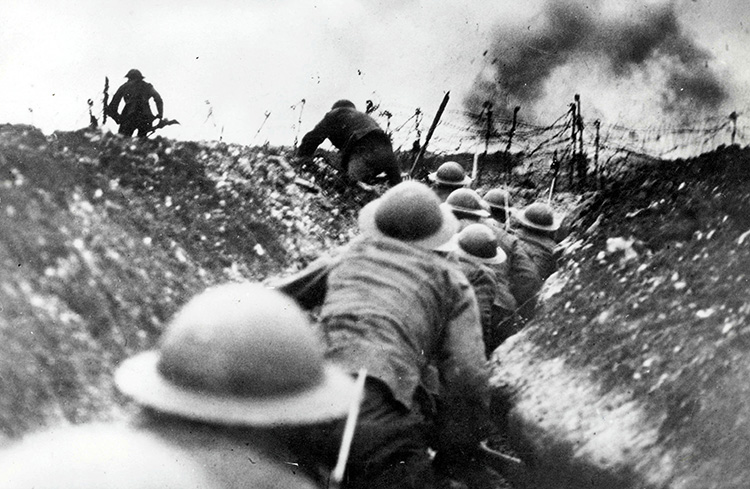
 2/ The Somme was planned as a joint Franco-British breakthrough to relieve pressure on Verdun and break through German defenses. General Douglas Haig commanded the British effort, pinning hopes on a week-long artillery barrage (1.7 million shells) to destroy barbed wire and trenches. On July 1, 1916—still the British Army's bloodiest day—120,000 men went over the top at 7:30 a.m. expecting a walkover. Instead, intact German machine guns mowed them down: 57,470 British casualties, 19,240 dead in hours.
2/ The Somme was planned as a joint Franco-British breakthrough to relieve pressure on Verdun and break through German defenses. General Douglas Haig commanded the British effort, pinning hopes on a week-long artillery barrage (1.7 million shells) to destroy barbed wire and trenches. On July 1, 1916—still the British Army's bloodiest day—120,000 men went over the top at 7:30 a.m. expecting a walkover. Instead, intact German machine guns mowed them down: 57,470 British casualties, 19,240 dead in hours.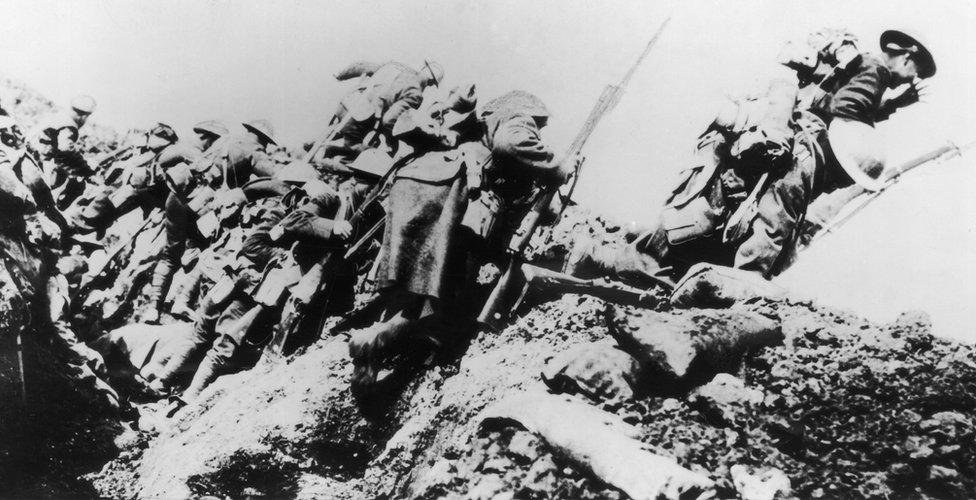
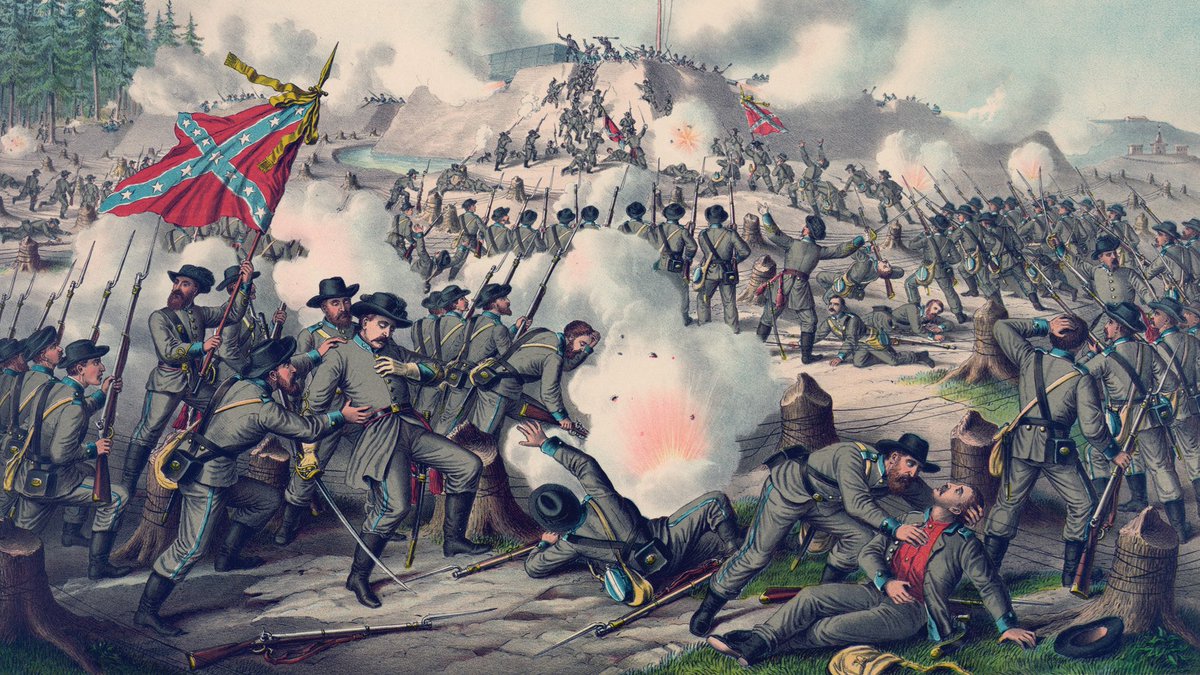
 2/ Longstreet’s Army of Northern Virginia veterans (Hood’s and McLaws’s divisions) detached from Chattanooga in early November, riding trains and marching 400 miles in bitter weather. Morale was high at first—Knoxville was lightly held, East Tennessee had strong Confederate sympathy, and reclaiming it would threaten Burnside’s supply line to Chattanooga and possibly force Grant to divert troops. Longstreet believed a quick strike could defeat Burnside and reopen the Virginia & Tennessee Railroad.
2/ Longstreet’s Army of Northern Virginia veterans (Hood’s and McLaws’s divisions) detached from Chattanooga in early November, riding trains and marching 400 miles in bitter weather. Morale was high at first—Knoxville was lightly held, East Tennessee had strong Confederate sympathy, and reclaiming it would threaten Burnside’s supply line to Chattanooga and possibly force Grant to divert troops. Longstreet believed a quick strike could defeat Burnside and reopen the Virginia & Tennessee Railroad.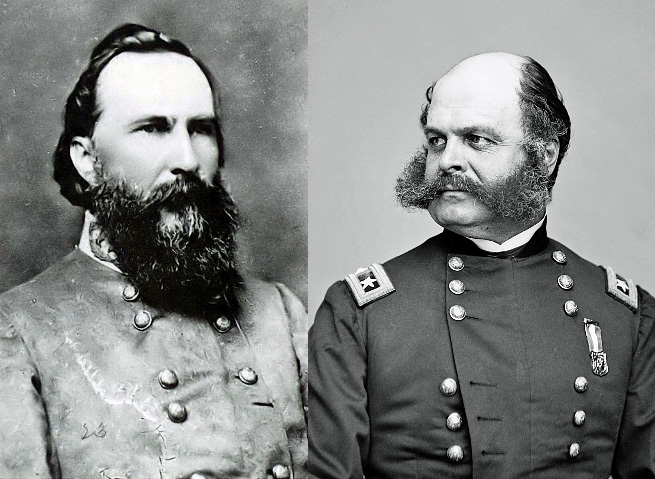
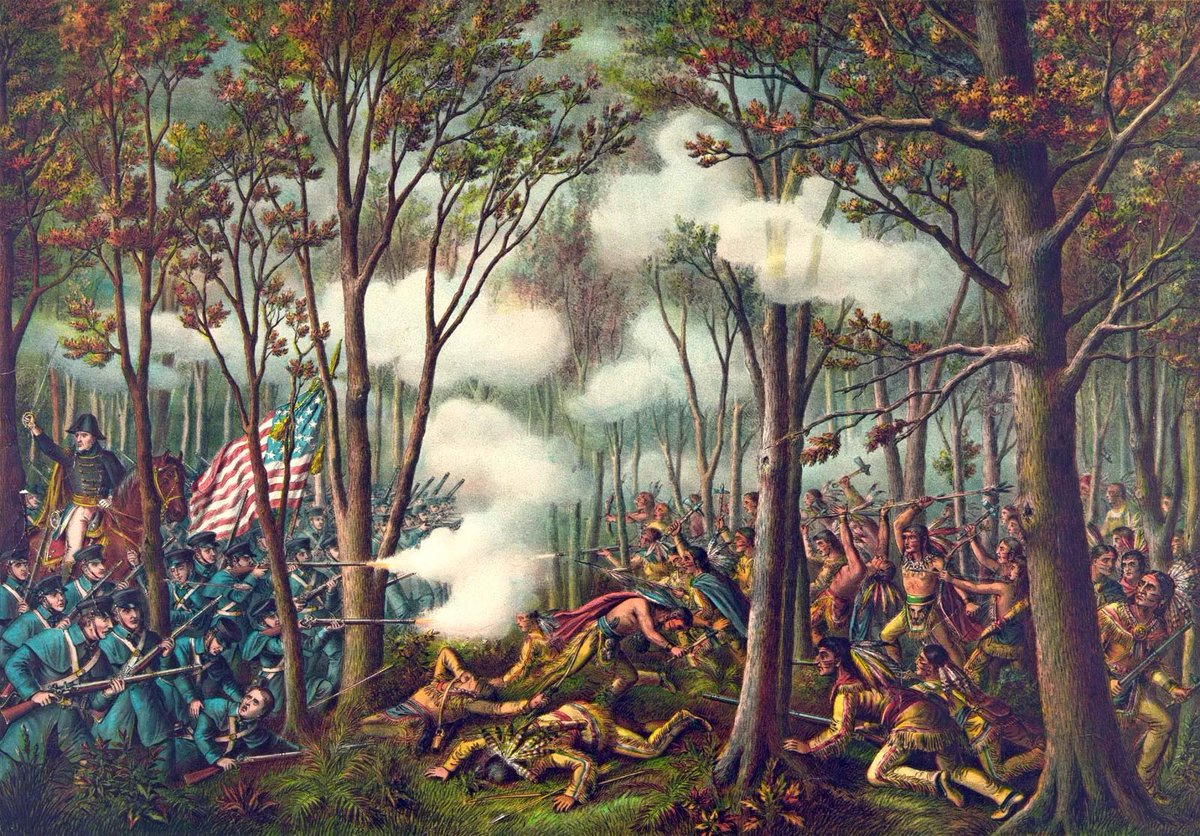
 2/ The battle's roots lay in the tense frontier of early 1800s Indiana Territory, where Shawnee leaders Tecumseh and his brother Tenskwatawa (the Prophet) formed a confederacy at Prophetstown to resist U.S. land grabs. Harrison, Indiana's territorial governor since 1800, negotiated treaties like Fort Wayne (1809) that ceded 3 million acres, fueling Native resentment. Born in 1773 to a Virginia planter family, Harrison's military upbringing (West Point dropout, aide to "Mad Anthony" Wayne) prepared him for conflict.
2/ The battle's roots lay in the tense frontier of early 1800s Indiana Territory, where Shawnee leaders Tecumseh and his brother Tenskwatawa (the Prophet) formed a confederacy at Prophetstown to resist U.S. land grabs. Harrison, Indiana's territorial governor since 1800, negotiated treaties like Fort Wayne (1809) that ceded 3 million acres, fueling Native resentment. Born in 1773 to a Virginia planter family, Harrison's military upbringing (West Point dropout, aide to "Mad Anthony" Wayne) prepared him for conflict.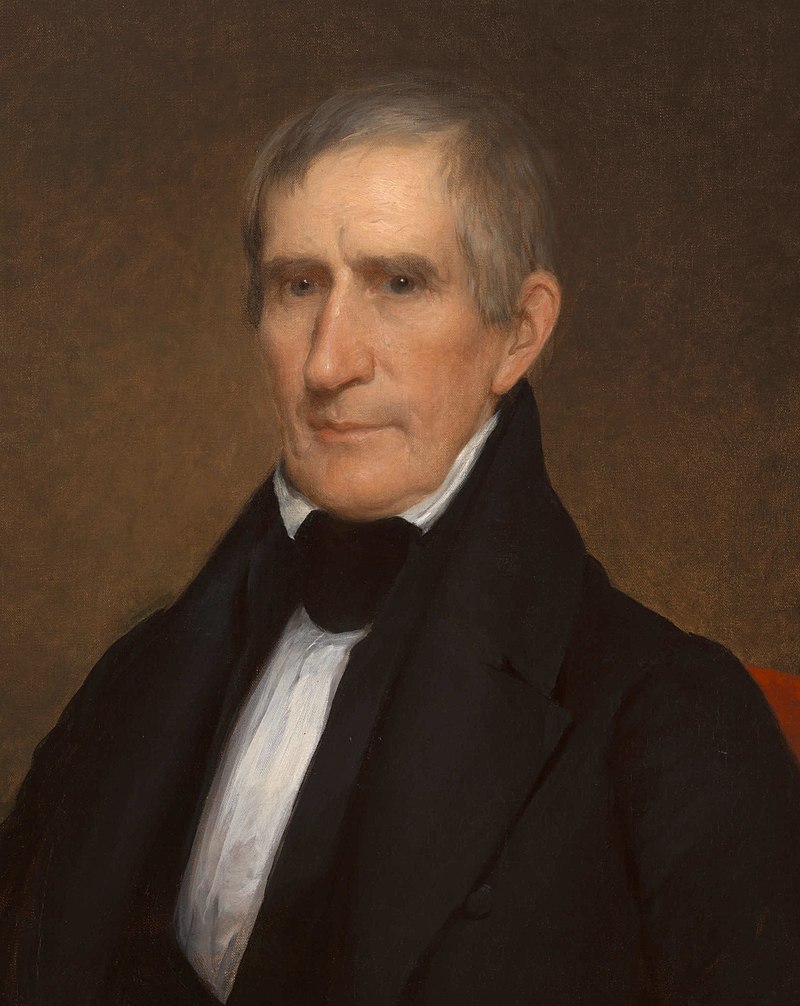

 2/ Born in Kentucky in 1808, Davis graduated West Point (1828), fought in the Black Hawk War, and earned fame leading the Mississippi Rifles at Monterrey and Buena Vista. Wounded at Buena Vista, he refused a brigadier general commission to return to the Senate.
2/ Born in Kentucky in 1808, Davis graduated West Point (1828), fought in the Black Hawk War, and earned fame leading the Mississippi Rifles at Monterrey and Buena Vista. Wounded at Buena Vista, he refused a brigadier general commission to return to the Senate. 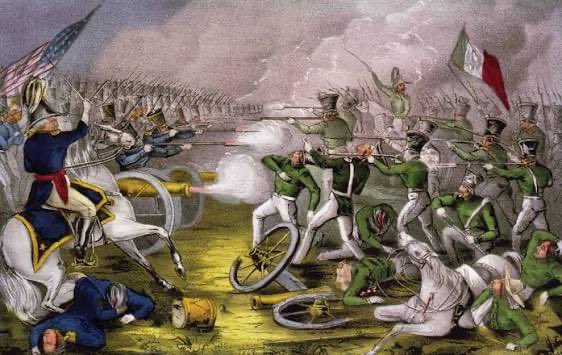
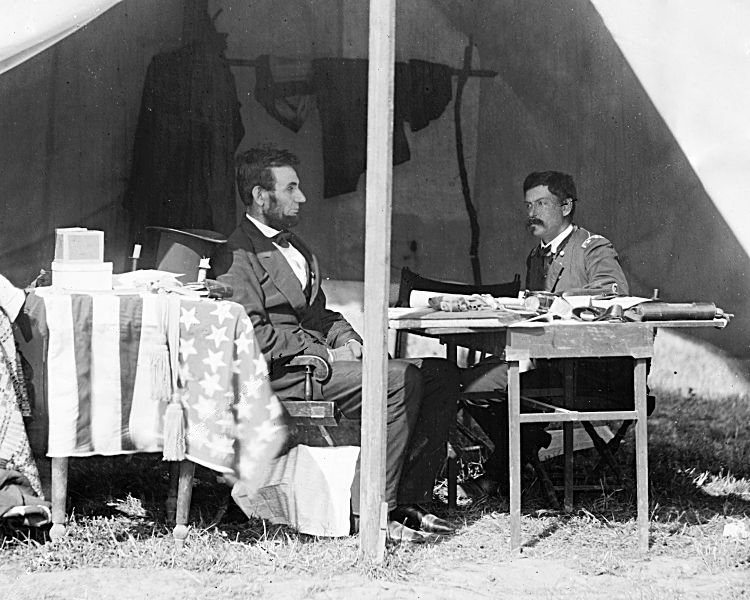
 2/ McClellan's caution defined his tenure: After building the Army into a powerhouse post-Bull Run (1861), he delayed offensives, overestimating Confederate numbers (e.g., 200,000 when Lee had 87,000 at Antietam). His Peninsula Campaign (1862) stalled near Richmond due to "slows," and at Antietam (Sept 17), he failed to pursue Lee despite a tactical win, letting the rebels escape. Lincoln fumed, "If General McClellan does not want to use the army, I would like to borrow it for a time."
2/ McClellan's caution defined his tenure: After building the Army into a powerhouse post-Bull Run (1861), he delayed offensives, overestimating Confederate numbers (e.g., 200,000 when Lee had 87,000 at Antietam). His Peninsula Campaign (1862) stalled near Richmond due to "slows," and at Antietam (Sept 17), he failed to pursue Lee despite a tactical win, letting the rebels escape. Lincoln fumed, "If General McClellan does not want to use the army, I would like to borrow it for a time."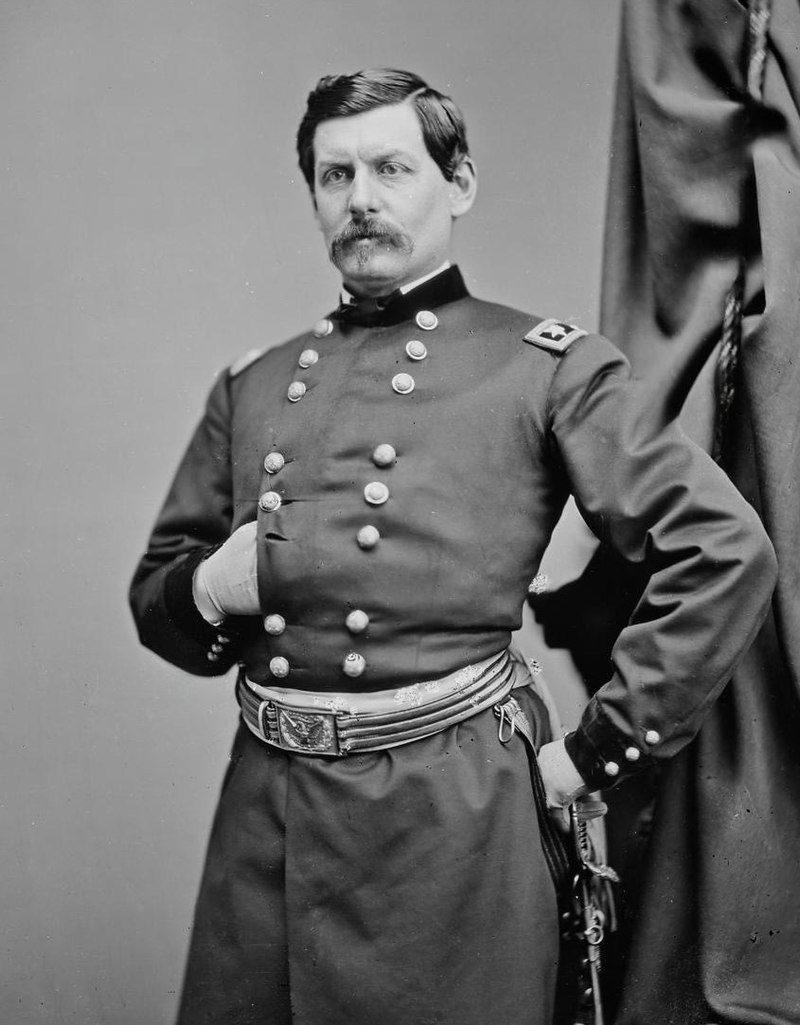
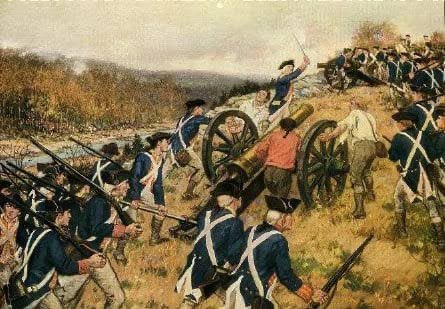
 Background to the New York Campaign
Background to the New York Campaign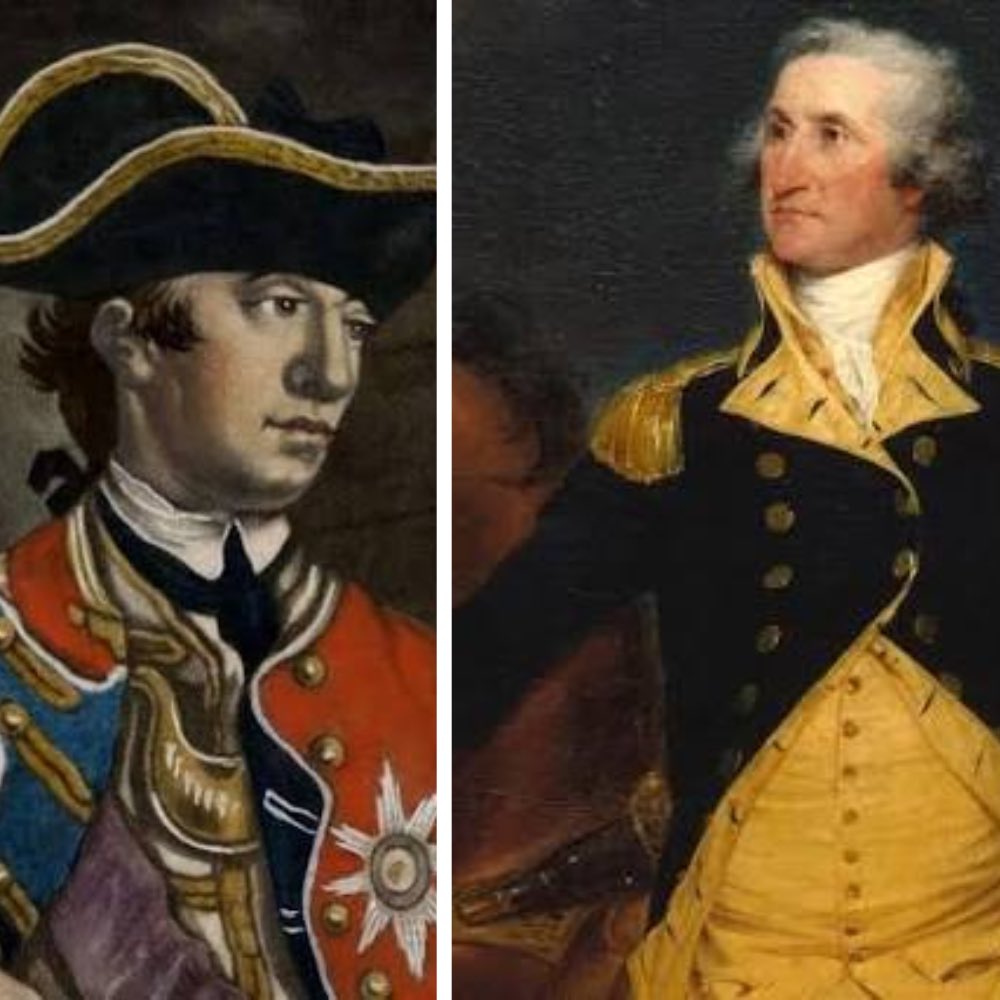


 Background to the Petersburg Siege
Background to the Petersburg Siege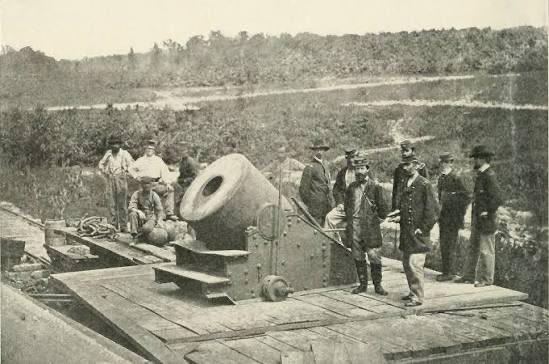
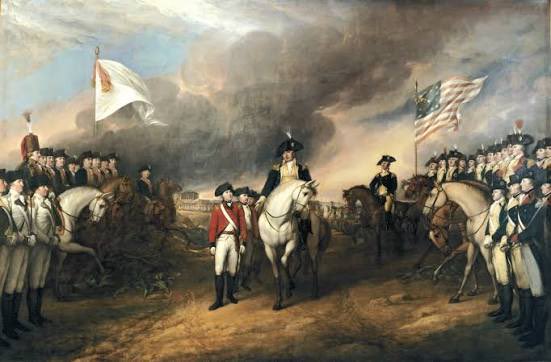
 2/ The Yorktown campaign began on September 28, with George Washington and French General Rochambeau besieging Cornwallis’s 8,000 troops, trapped by French naval victory at the Virginia Capes. After 21 days of artillery bombardment and assaults on British redoubts, Cornwallis surrendered on October 19, with 7,087 troops marching out to “The World Turned Upside Down.” This broke British morale and military resolve.
2/ The Yorktown campaign began on September 28, with George Washington and French General Rochambeau besieging Cornwallis’s 8,000 troops, trapped by French naval victory at the Virginia Capes. After 21 days of artillery bombardment and assaults on British redoubts, Cornwallis surrendered on October 19, with 7,087 troops marching out to “The World Turned Upside Down.” This broke British morale and military resolve.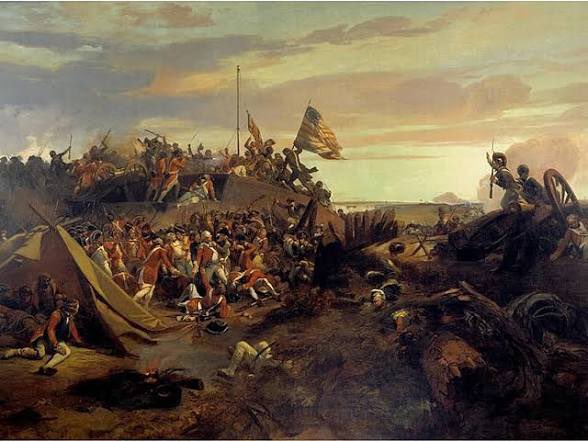
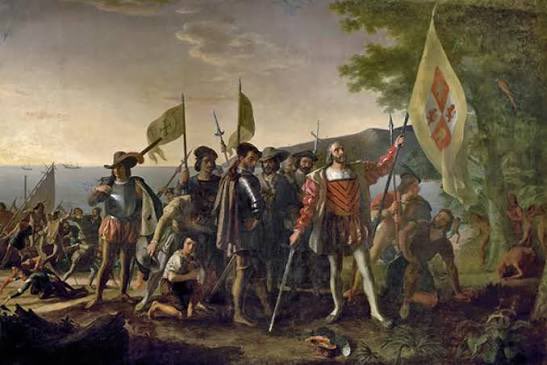
 2/ Columbus set sail from Spain on August 3, 1492, with three ships: the Niña, the Pinta, and the Santa María. Funded by Queen Isabella and King Ferdinand, he embarked on a bold quest to find a western route to Asia. Facing mutinous crews, fierce storms, and the unknown, his leadership and navigational genius kept hope alive.
2/ Columbus set sail from Spain on August 3, 1492, with three ships: the Niña, the Pinta, and the Santa María. Funded by Queen Isabella and King Ferdinand, he embarked on a bold quest to find a western route to Asia. Facing mutinous crews, fierce storms, and the unknown, his leadership and navigational genius kept hope alive.

 2/ The background traces to Somalia’s civil war in 1991, where clan warfare and famine killed hundreds of thousands, prompting UN intervention in 1992 (UNOSOM I) to deliver aid amid chaos from warlords like Mohamed Farrah Aidid. U.S. forces joined under Operation Restore Hope in December 1992 to secure food distribution, but Aidid’s attacks on UN peacekeepers escalated tensions, leading to a shift from humanitarian aid to targeting Aidid. By August 1993, Task Force Ranger—comprising Delta Force, Rangers, and helicopters from the 160th SOAR—was deployed to capture him and his lieutenants in Mogadishu.
2/ The background traces to Somalia’s civil war in 1991, where clan warfare and famine killed hundreds of thousands, prompting UN intervention in 1992 (UNOSOM I) to deliver aid amid chaos from warlords like Mohamed Farrah Aidid. U.S. forces joined under Operation Restore Hope in December 1992 to secure food distribution, but Aidid’s attacks on UN peacekeepers escalated tensions, leading to a shift from humanitarian aid to targeting Aidid. By August 1993, Task Force Ranger—comprising Delta Force, Rangers, and helicopters from the 160th SOAR—was deployed to capture him and his lieutenants in Mogadishu.
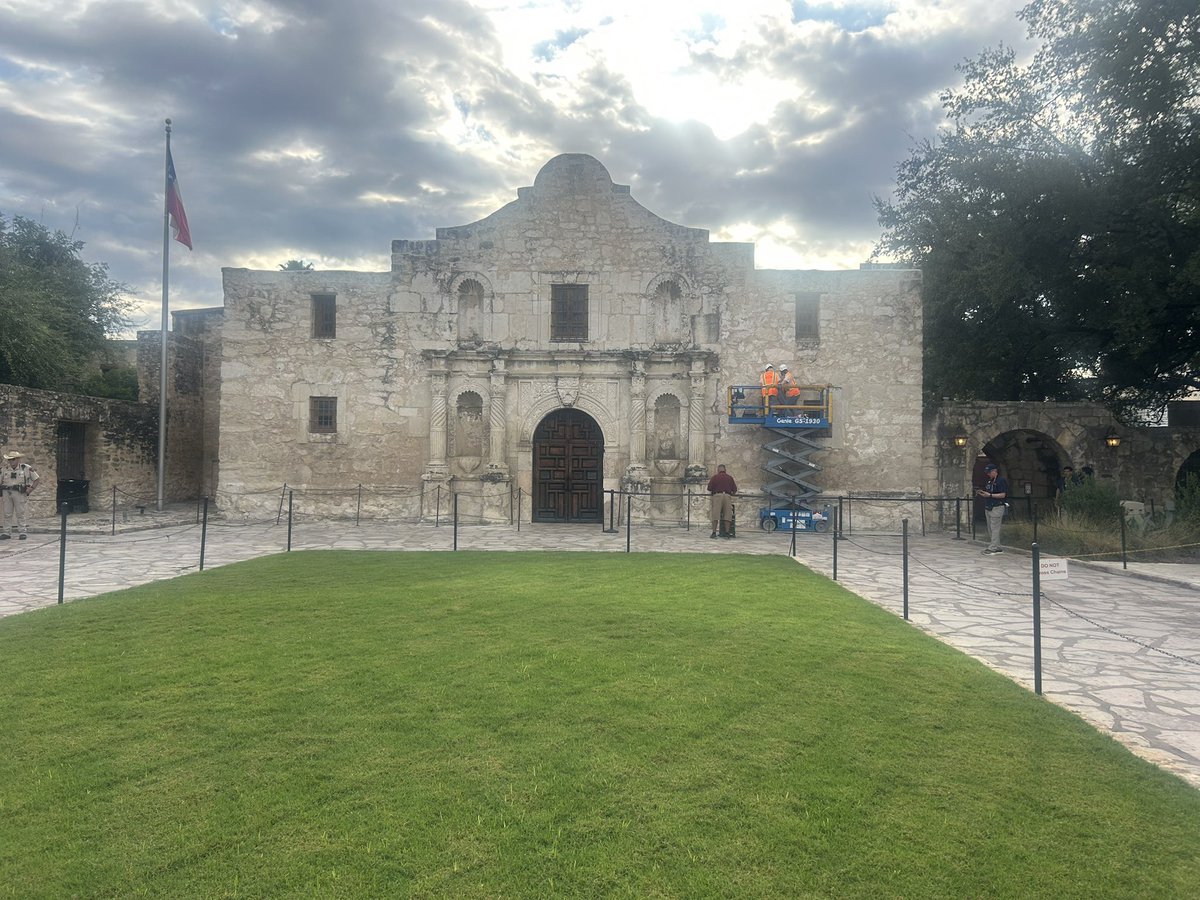

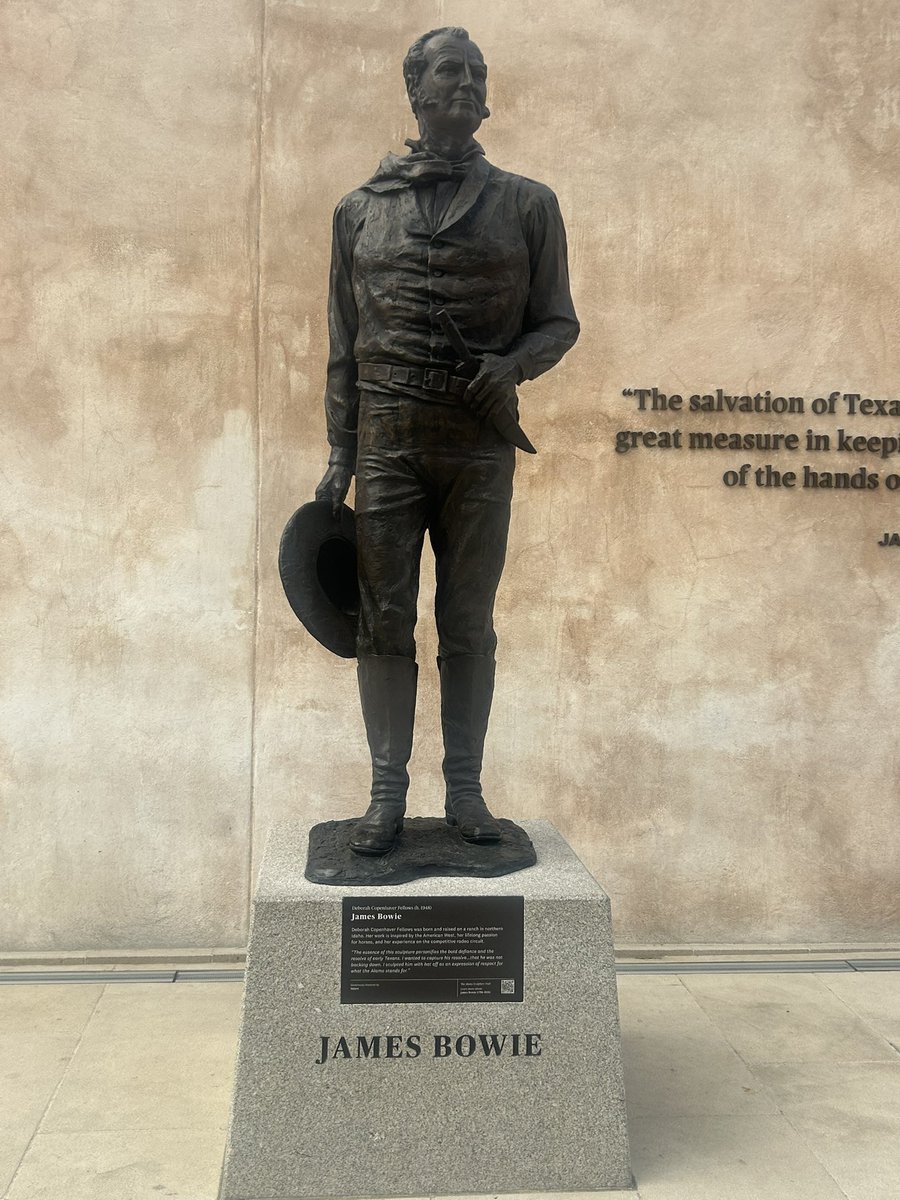
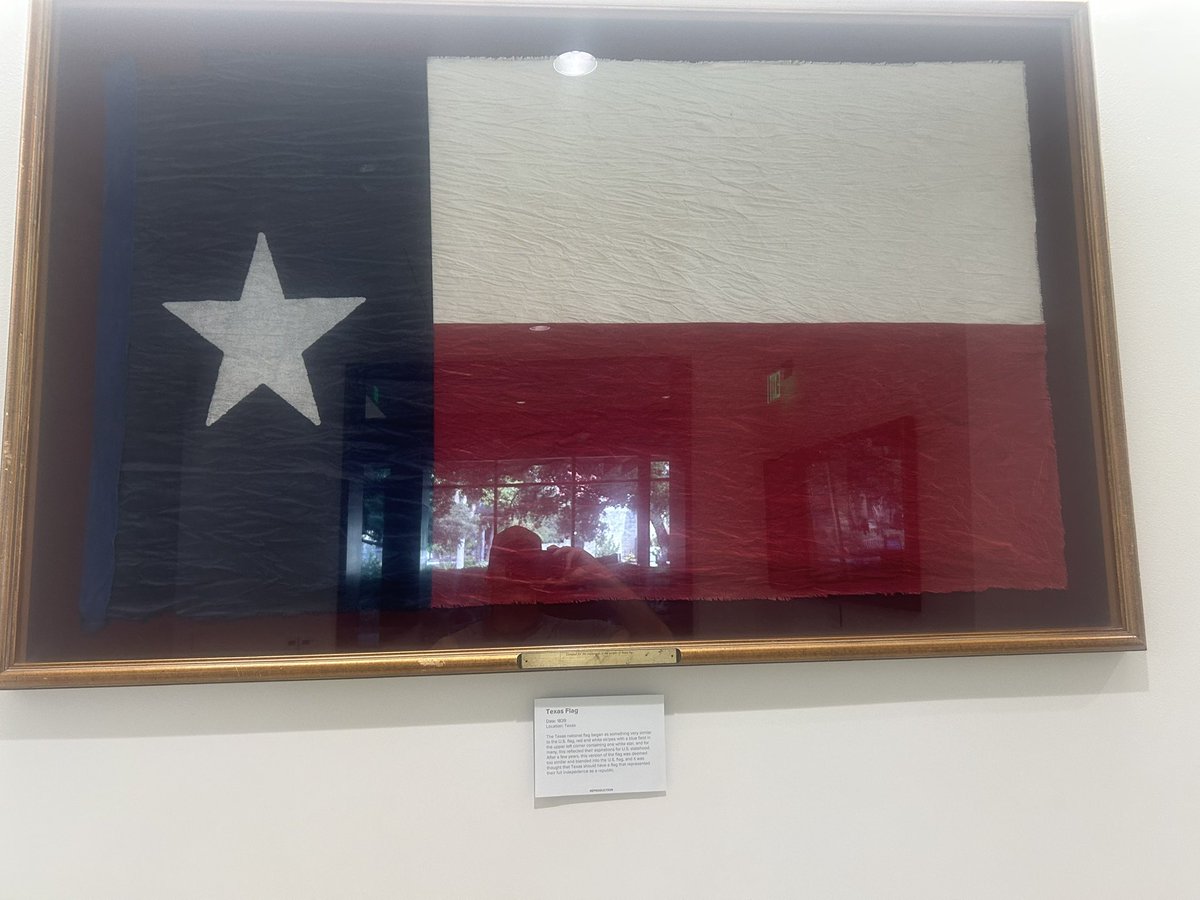 2/ The Mission Church (Alamo Chapel): This was the easternmost structure, originally a Spanish mission from 1718. During the battle, it served as a fallback position and powder magazine. As Mexican forces breached the walls, survivors retreated here for a last stand—many were killed inside. Women and children took refuge in here during the battle. Today, it’s the site’s centerpiece, with artifacts like cannonballs embedded in walls. Pic: frontal view of the church, inside the church.
2/ The Mission Church (Alamo Chapel): This was the easternmost structure, originally a Spanish mission from 1718. During the battle, it served as a fallback position and powder magazine. As Mexican forces breached the walls, survivors retreated here for a last stand—many were killed inside. Women and children took refuge in here during the battle. Today, it’s the site’s centerpiece, with artifacts like cannonballs embedded in walls. Pic: frontal view of the church, inside the church.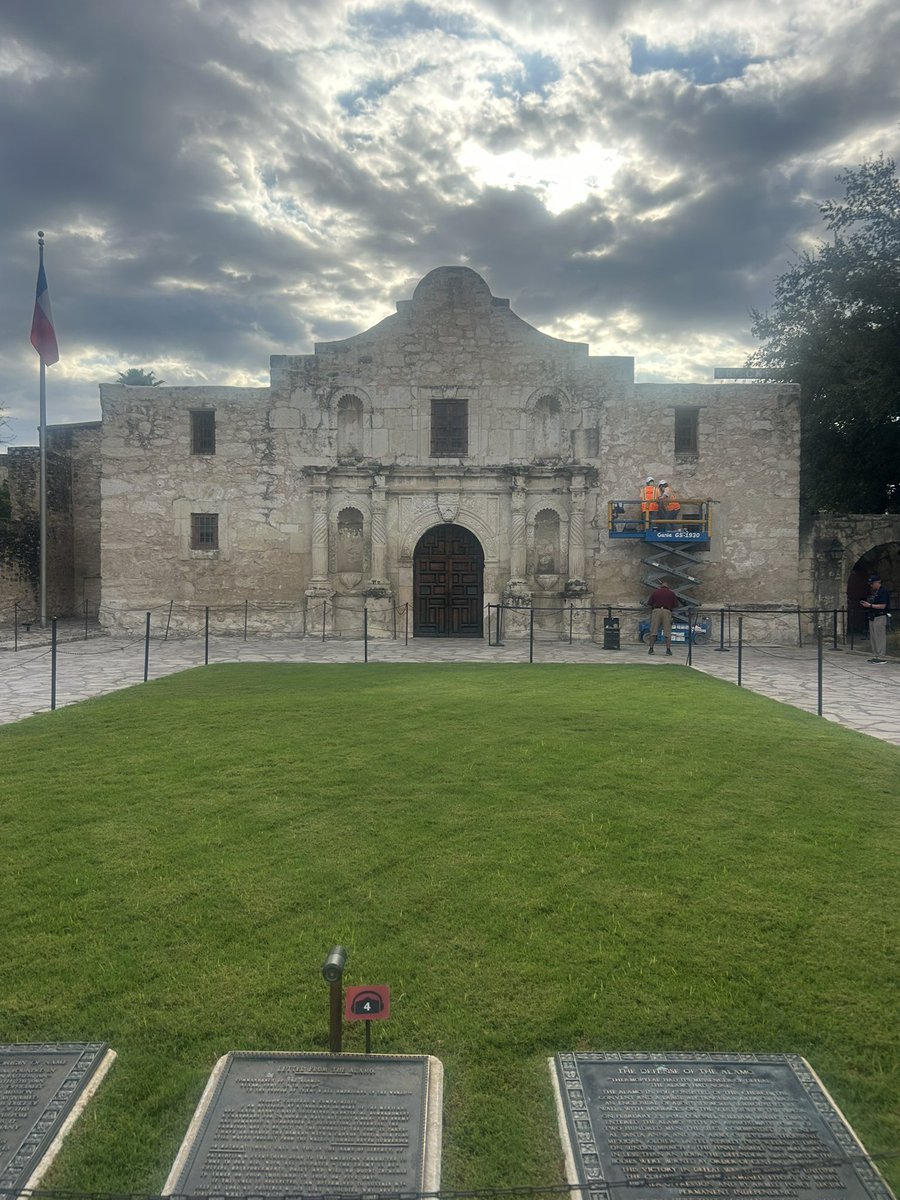
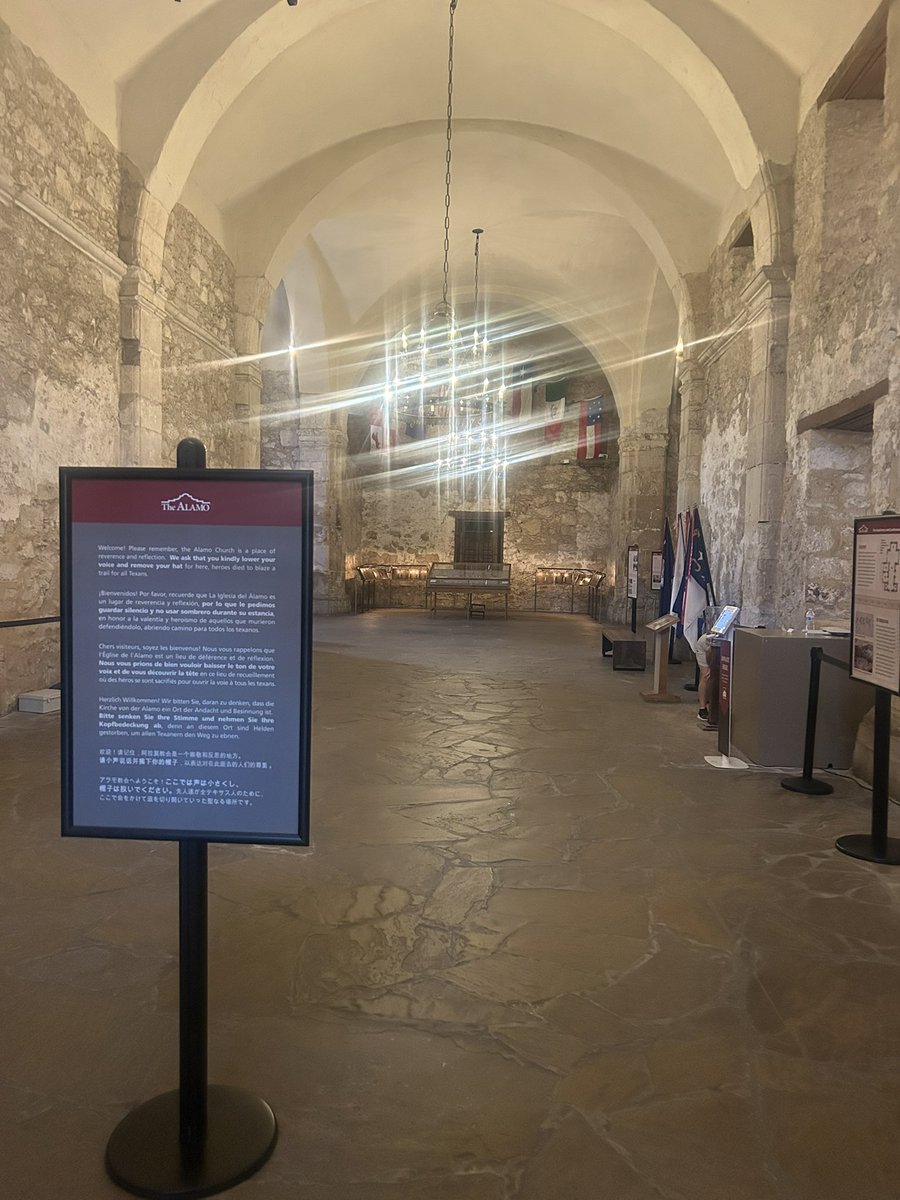

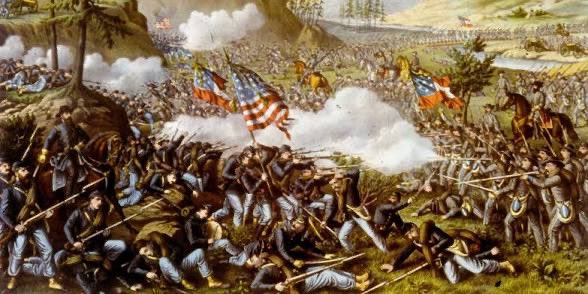
 Background to the Chattanooga Campaign
Background to the Chattanooga Campaign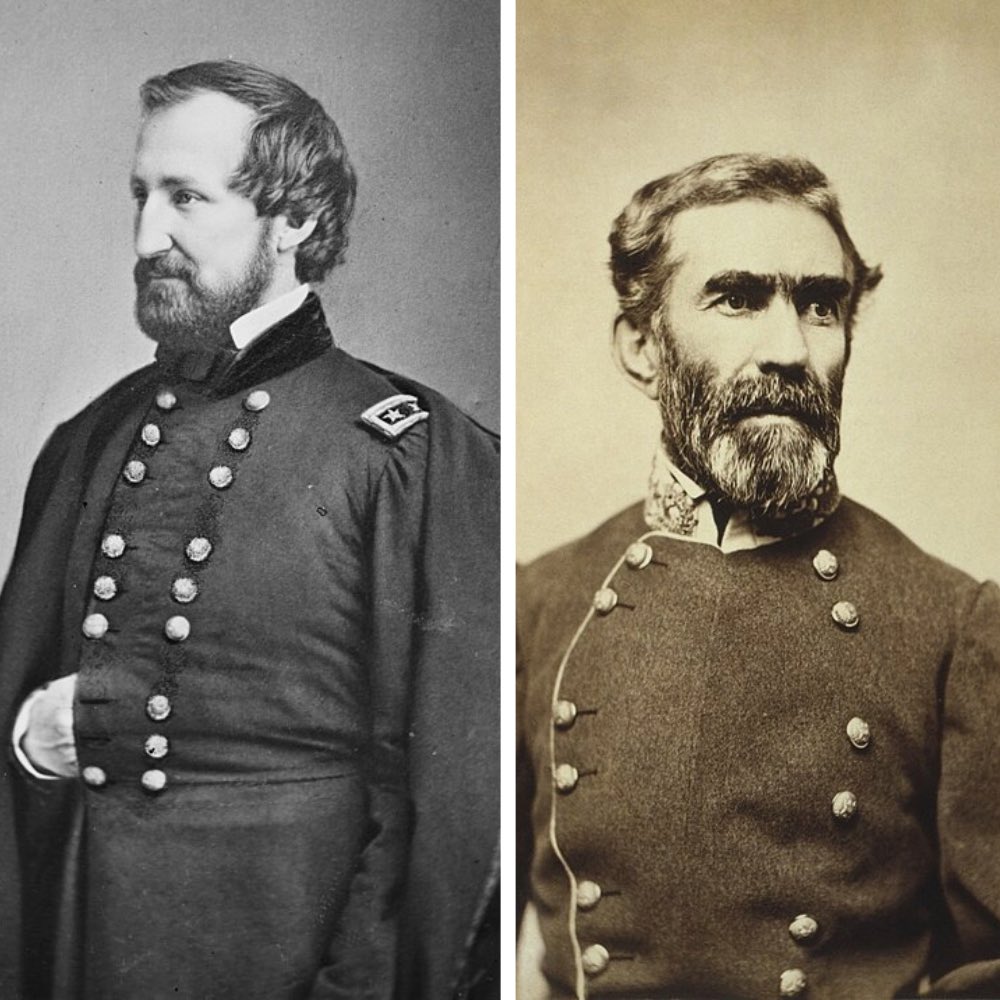
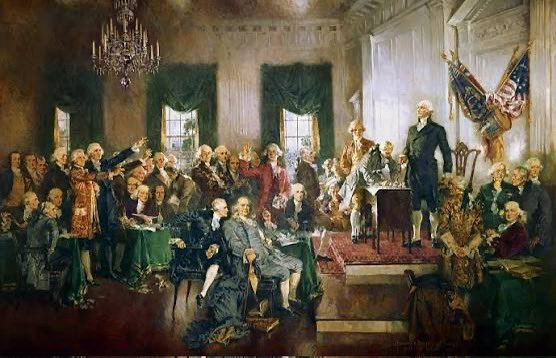
 2/ The 14th Amendment (1868) was meant for post-Civil War reconstruction, but it gutted states’ rights by applying federal protections nationwide via the Due Process Clause. It also birthed the “anchor baby” rule through birthright citizenship, allowing anyone born on U.S. soil to claim citizenship—leading to immigration loopholes and debates over national sovereignty. A double-edged sword at best.
2/ The 14th Amendment (1868) was meant for post-Civil War reconstruction, but it gutted states’ rights by applying federal protections nationwide via the Due Process Clause. It also birthed the “anchor baby” rule through birthright citizenship, allowing anyone born on U.S. soil to claim citizenship—leading to immigration loopholes and debates over national sovereignty. A double-edged sword at best.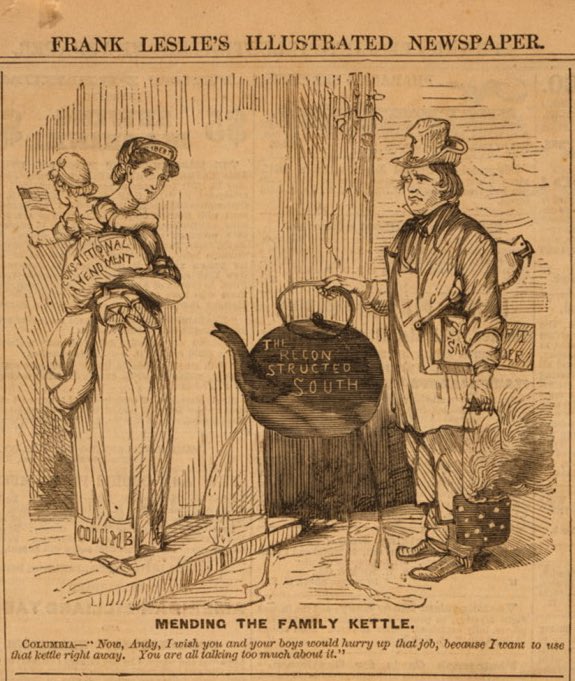

 Prelude
Prelude 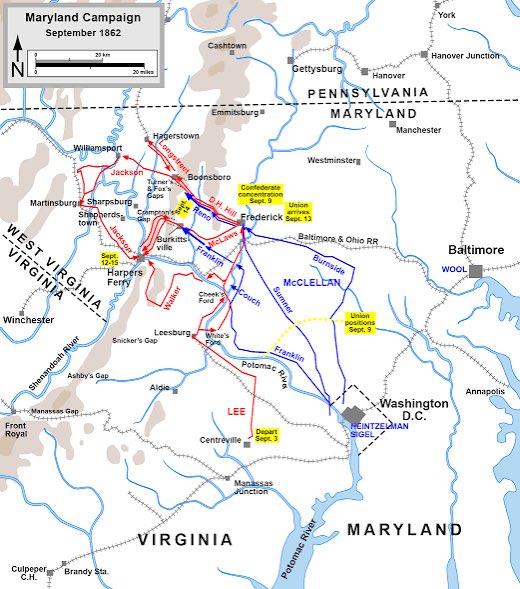
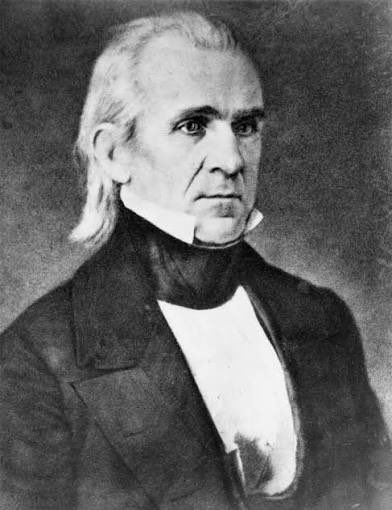
 2/ Polk is often overlooked, yet his presidency was remarkably effective. He entered office with specific objectives: annexing Texas, resolving the Oregon boundary dispute, acquiring California, and lowering tariffs. He accomplished each one within four years, demonstrating focused and efficient leadership without major controversies.
2/ Polk is often overlooked, yet his presidency was remarkably effective. He entered office with specific objectives: annexing Texas, resolving the Oregon boundary dispute, acquiring California, and lowering tariffs. He accomplished each one within four years, demonstrating focused and efficient leadership without major controversies.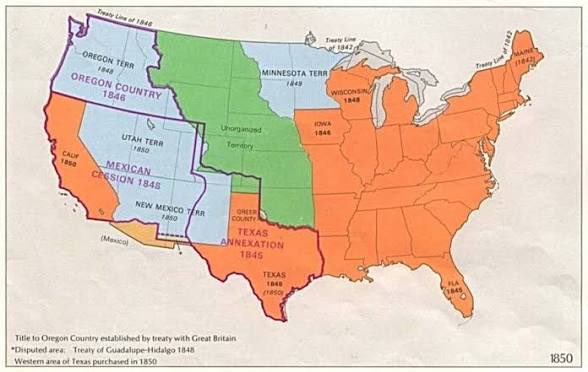

 2/ The Korean War erupted on June 25, 1950, when North Korea invaded the South, quickly overrunning U.N. forces (mostly U.S. and South Korean) and pushing them to the Pusan Perimeter by August. MacArthur, U.N. Supreme Commander, devised Inchon as a flanking maneuver to bypass the front lines, despite risks like 30-foot tides, mudflats, seawalls, and heavy defenses. Skeptics in Washington called it impossible, but Truman approved it amid desperate conditions. Preliminary naval bombardment and mine clearance began September 13.
2/ The Korean War erupted on June 25, 1950, when North Korea invaded the South, quickly overrunning U.N. forces (mostly U.S. and South Korean) and pushing them to the Pusan Perimeter by August. MacArthur, U.N. Supreme Commander, devised Inchon as a flanking maneuver to bypass the front lines, despite risks like 30-foot tides, mudflats, seawalls, and heavy defenses. Skeptics in Washington called it impossible, but Truman approved it amid desperate conditions. Preliminary naval bombardment and mine clearance began September 13.
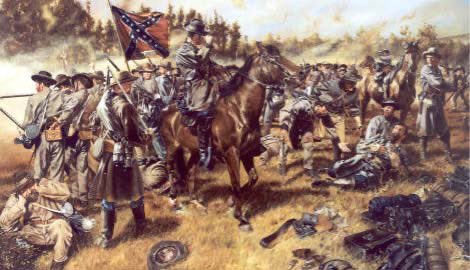
 2/ The battle stemmed from Lee’s bold Maryland Campaign, launched after Second Manassas to invade the North, relieve Virginia, recruit sympathizers, and force a peace—splitting his army to capture Harpers Ferry while advancing. McClellan, pursuing with the Army of the Potomac, discovered Lee’s plans (Special Order 191) on September 13, enabling a rapid advance to South Mountain’s three strategic gaps—Crampton’s, Fox’s, and Turner’s—to exploit the divided Confederates and prevent their convergence. Lee, aware of the threat, rushed D.H. Hill and Longstreet’s troops to hold the passes.
2/ The battle stemmed from Lee’s bold Maryland Campaign, launched after Second Manassas to invade the North, relieve Virginia, recruit sympathizers, and force a peace—splitting his army to capture Harpers Ferry while advancing. McClellan, pursuing with the Army of the Potomac, discovered Lee’s plans (Special Order 191) on September 13, enabling a rapid advance to South Mountain’s three strategic gaps—Crampton’s, Fox’s, and Turner’s—to exploit the divided Confederates and prevent their convergence. Lee, aware of the threat, rushed D.H. Hill and Longstreet’s troops to hold the passes.